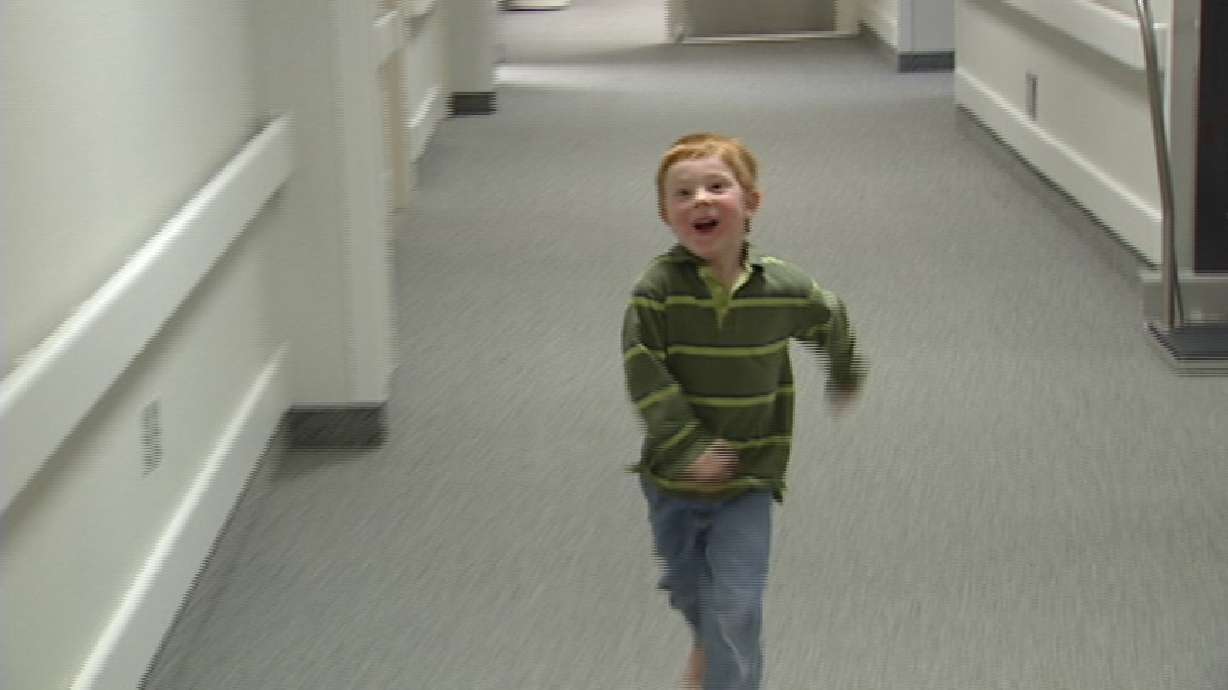Estimated read time: 2-3 minutes
This archived news story is available only for your personal, non-commercial use. Information in the story may be outdated or superseded by additional information. Reading or replaying the story in its archived form does not constitute a republication of the story.
Ed Yeates ReportingParents of children with muscular dystrophy hope a new experimental drug will keep their kids from becoming wheelchair bound. The University of Utah is testing the compound on children with what is called Duchenne Muscular Dystrophy, one of the more serious forms of the disease.
Parents participating in these second stage clinical trials are cautiously optimistic. Some say they've already seen some dramatic changes.
Five-year old Jack Knight from Colorado is in the early stages of Duchenne. If the disease follows its normal course, he'll most likely be in a wheelchair by age twelve. But with this early intervention, doctors hope they can slow down, if not halt, the progression of his disease.
After taking the new drug for only 28 days, he appears to have sustained energy. He moves more freely.
Angela Knight, Jack's Mother: "He could stand up a lot straighter. He could hold his muscles. He could walk up the stairs with alternating feet without holding on."
The new drug, now known as "PTC-124", actually restores an ingredient needed to build muscle fiber.
Kevin Flannigan, M.D., University of Utah Neurologist: "We hope by restoring distrophine protein to the muscle fiber, that muscle won't deteriorate."
Angela Knight: "And so to have this drug come along and say, 'Maybe this isn't going to happen.'"
Dr. Kevin Flannigan and his colleagues call these exciting clinical trials. Involving not only PCT-124 but a whole host of new drugs that for the first time may keep these kids on their feet and mobile.
Phase three trials could begin by the end of this year. After that, if the FDA likes what it sees, the first generation of these new drugs might be approved for general use.
The University is one of only three centers involved in these clinical trials. In fact, the "U" played a key role in developing a new diagnostic test, which can now seek out kids with Duchenne.









